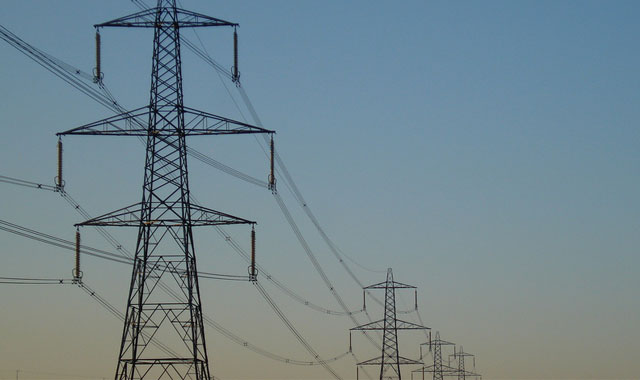
Eskom board chairman Zola Tsotsi said on Friday that at least five of Medupi’s units would have had to be running to have made a meaningful contribution to filling the 3GW shortfall experienced on Thursday.
Eskom spokesman Andrew Etzinger warned on Sunday that Eskom has not ruled out the possibility of further outages. “At this moment load shedding is unlikely, but in the coming week usage will have to be carefully monitored. The rains continue in Mpumalanga.
“We are taking it day by day, any changes in technical performance [such as the failure of a major power station coupled with reduced supply from Zimbabwe] could see new load shedding if its necessary,” he said.
Eskom CEO Brian Dames told a hastly convened press conference on Friday, also attended by Tsoti, that “the risk of emergency conditions developing remain with us for the rest of March into April”. There was a suggestion that the system would in fact be vulnerable for the next six months.
There have been three power emergencies this year alone — in November and February — that have nearly sent the grid over the edge, and Eskom convinced users such as big industrials and large companies to cut usage by 10%.
Faced with the collapse of the national grid, Eskom took the decision at 6am last Thursday to impose load shedding across South Africa for between two and four hours over the day, plunging homes into darkness, halting trains, grounding aircraft and forcing companies to fire up generators to operate until demand decreased sufficiently. At 10pm on Thursday night, the “power emergency” was called off once demand was reduced by about 4GW — to 28GW, against a 31,9GW demand. This was after the cut-back in usage by its large clients by 10% failed to resolve the power shortage problem sufficiently.
While wet coal was the reason for the loss of the important Kendal power station as government initially indicated, there were other factors that contributed to the load shedding, which energy minister Ben Martins and public enterprise minister Malusi Gigaba did not mention. The least of these was the razor-thin margin under which Eskom operates when it comes to power supply. As Dames said at the Friday press conference, also attended by Tsotsi, the Thursday outage was caused by a general power constraints and a 1,5GW electricity supply impact.
He added that “had we got Medupi in 1998, this would not have happened”.
From what Tsotsi said, had the 4,8GW Medupi plant been built in 2011 as planned, it would have made a difference. But Eskom’s new build programme, including Medupi, is running three years late.
Medupi has also been plagued by labour unrest, building issues, alleged shoddy workmanship and disputes with contractors over slow delivery, which is to some extent affecting Kusile too.
It would have meant that an additional 3GW of power would be available on the base load generation capacity of the grid, which would present about 7,5% of the current total of 40GW.
The plans were that Medupi and Kusile would go online in eight-month intervals.
It was the first load shedding since 2008, when rolling blackouts cost billions of rands to the economy It also comes shortly after finance minister Pravin Gordhan presented his 2014/2015 budget that featured heavy reliance on the implementation of the National Development Plan, which includes reliant energy supply.
Should outages continue, the result could have serious political and economic consequences, as South Africa heads towards a national election in May and rating agencies such as Moody’s and Standard and Poor’s watch the country with interest.
The latest budget review saw Eskom’s infrastructure figures revised downwards from R61,9bn in the last budget to R56,4bn in the 2014/2015 budget.

Treasury said: “Eskom’s infrastructure figures have been revised downwards over the medium term due to lower projected revenue.”
Eskom also received half of what it requested from the National Energy Regulator of South Africa, which allowed it a price increase of 8% — half of what it had asked for.
Gordhan in February, a week after Eskom had to use emergency measures twice to cut consumption after generating units went down for unplanned maintenance, said it was very possible that the delay in bringing Medupi online “had hampered growth”.
“The delays at Medupi were unfortunate … Really they are regrettable, because if we had those supplies earlier we might have grown a bit faster and created a bit more certainty in our environment. But there is not much we can do about that.”
While coal shortages were not the problem, as Kendal having 57 days of coal in stock, there are now calls for Eskom to intensify its efforts to move away from its dependence on coal to independent power producers (IPPs) and greener alternatives.
At the moment, Eskom is running open cycle gas turbine units, which cost about R10bn to operate last year and were about 16 times more expensive that the coal station.
Dames admitted that Eskom extended a short-term electricity purchase agreement from some IPPs and municipal generators to the end of May, without regulator approval. This meant the money was coming out of Eskom’s pocket.
He said that although Eskom was buying short-term capacity this way to offset the gas turbine units, the new electricity generation regulations prevented Eskom from procuring additional IPP capacity, as the regulations stipulated at the department of energy was responsible for procurement.
He disputed ongoing rumours that Eskom was stalling the development of the 1 320MW Mmamabula power project in Botswana, saying that it was prepared to enter a contract and offtake agreement, but that the deal collapsed owing to disagreements over pricing. “We simply could not agree on price,” he said.
Martins said in February that the department planned to undertake long-awaited procurement processes for new baseload and cogeneration IPP projects by the end of March. — (c) 2014 Mail & Guardian
- Visit the Mail & Guardian Online, the smart news source

